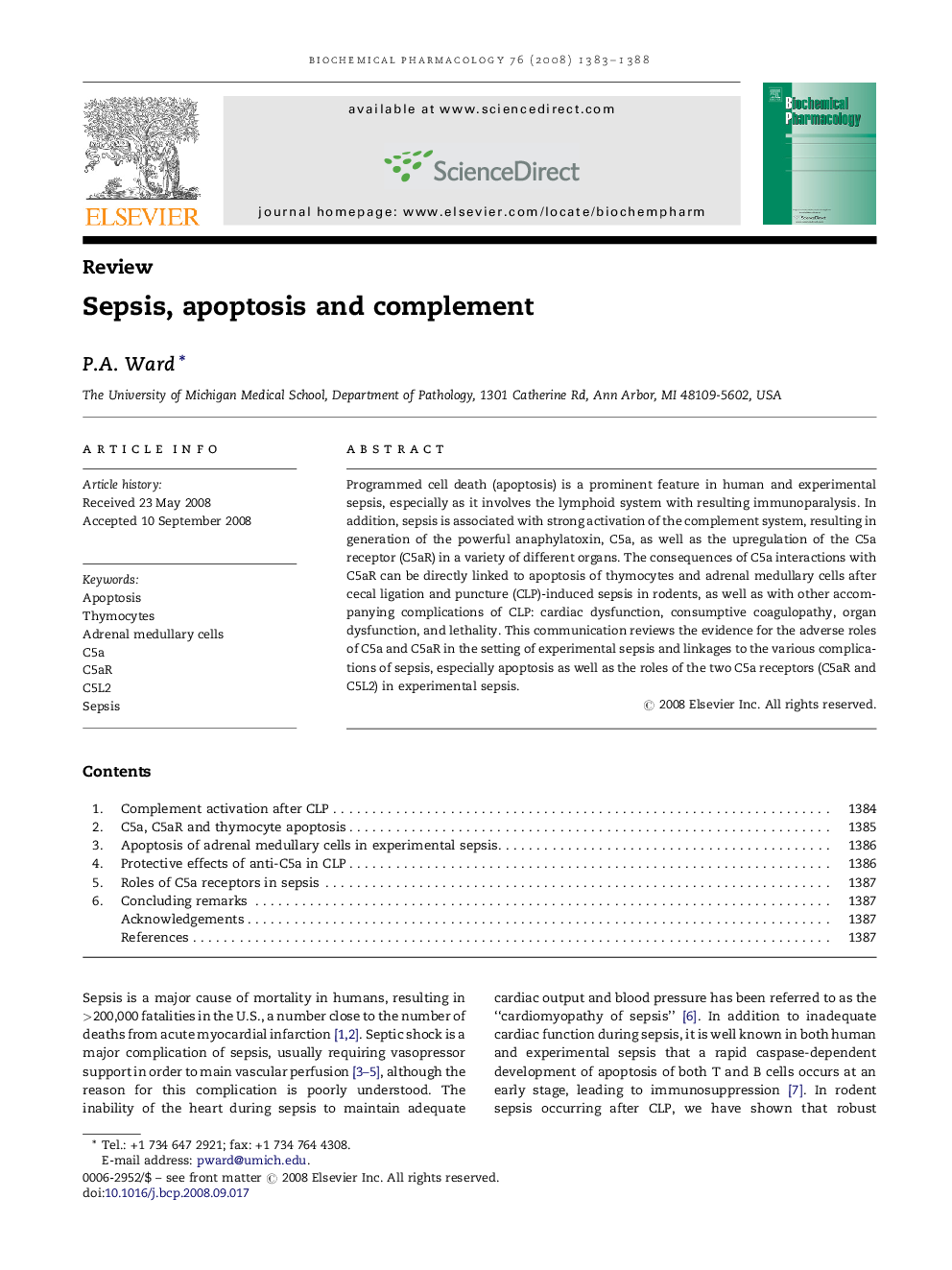| Article ID | Journal | Published Year | Pages | File Type |
|---|---|---|---|---|
| 2514544 | Biochemical Pharmacology | 2008 | 6 Pages |
Programmed cell death (apoptosis) is a prominent feature in human and experimental sepsis, especially as it involves the lymphoid system with resulting immunoparalysis. In addition, sepsis is associated with strong activation of the complement system, resulting in generation of the powerful anaphylatoxin, C5a, as well as the upregulation of the C5a receptor (C5aR) in a variety of different organs. The consequences of C5a interactions with C5aR can be directly linked to apoptosis of thymocytes and adrenal medullary cells after cecal ligation and puncture (CLP)-induced sepsis in rodents, as well as with other accompanying complications of CLP: cardiac dysfunction, consumptive coagulopathy, organ dysfunction, and lethality. This communication reviews the evidence for the adverse roles of C5a and C5aR in the setting of experimental sepsis and linkages to the various complications of sepsis, especially apoptosis as well as the roles of the two C5a receptors (C5aR and C5L2) in experimental sepsis.
